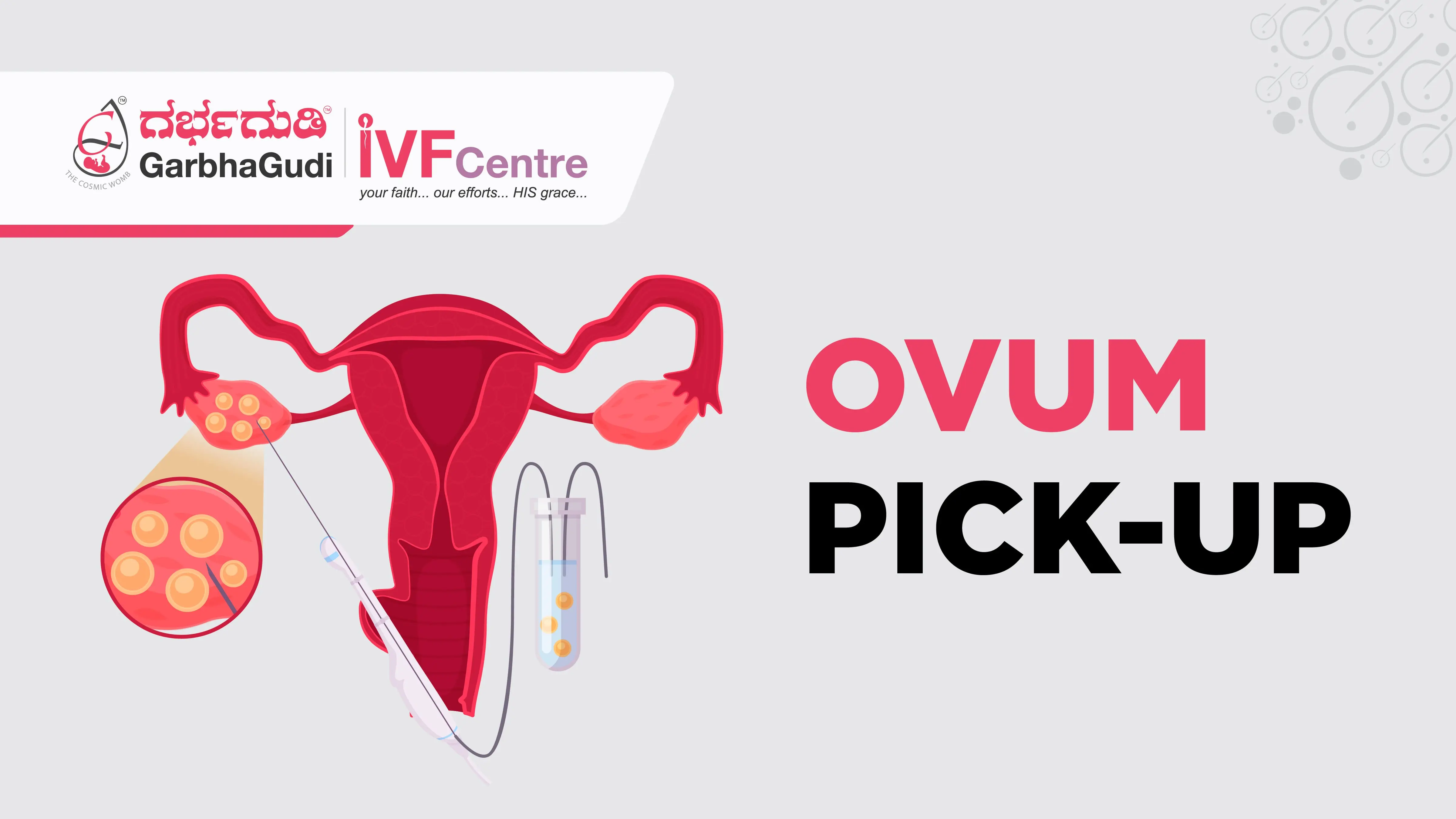Ovum Pick-Up: Step-by-Step Guide to Egg Retrieval in IVF

Introduction
Ovum Pick-Up (OPU) is a medical procedure used to extract eggs from a woman's ovaries. It involves the use of a needle guided by ultrasound to retrieve oocytes through vacuum suction. The term "ovum" refers to an egg cell produced by the female reproductive system through meiosis. The plural form is "ova," and they reside in the ovaries, located on either side of the uterus.
Once your fertility specialist determines that your eggs are mature and ready for retrieval, a final medication such as HCG or Lupron is administered approximately 36 hours before the procedure. This ensures the eggs reach full maturity before extraction. The timing of this final injection, often referred to as the "trigger," is crucial, as egg retrieval—called Ovum Pick-Up (OPU)—occurs 36 to 38 hours later.
The egg retrieval process involves the use of ultrasound imaging to guide a thin needle through the vaginal wall into the ovarian follicles, where the eggs are located. Once the eggs are collected, the patient is observed as they recover from the anesthesia, which typically causes mild discomfort or nausea.
Purpose of Ovum Pick-Up
Ovum Pick-Up is a critical step in fertility treatments like In Vitro Fertilization (IVF) and Intracytoplasmic Sperm Injection (ICSI). The procedure allows for the collection of multiple eggs, increasing the chances of fertilization and embryo development.
In IVF, the retrieved eggs are combined with sperm in a lab to create embryos, which are then transferred into the uterus. IVF is used to treat a variety of fertility challenges, including female infertility and unexplained infertility. IVF also allows for Preimplantation Genetic Testing (PGT), where embryos can be screened for genetic abnormalities before transfer.
In ICSI, a single sperm is injected directly into each egg to facilitate fertilization. This procedure is particularly useful in cases of male infertility, such as low sperm count or poor motility. By directly aiding the fertilization process, ICSI enhances the chances of successful conception.
Pre-Procedure Preparations
Before undergoing OPU, patients typically receive ovarian stimulation treatments to encourage the production of multiple eggs. These treatments involve the administration of hormones like gonadotropins (FSH and LH), which stimulate the growth of ovarian follicles. Other medications like clomiphene citrate or letrozole may also be used depending on the patient’s needs.
Regular monitoring through follicular studies is essential to track the development of the follicles and to ensure the timing of the OPU is optimal. Ultrasound scans measure follicle size and endometrial thickness to ensure the body is ready for egg retrieval.
Before the OPU procedure, patients are advised to avoid eating or drinking for several hours to prepare for sedation.
The Ovum Pick-Up Process
During the OPU procedure, the patient lies down and is given a mild sedative through an IV. Using ultrasound guidance, the doctor inserts a thin needle through the vaginal wall into the ovaries to gently extract the eggs from the follicles. The retrieved eggs are collected in test tubes and sent to the embryologist for further examination and preparation for fertilization.
This procedure is minimally invasive and typically does not leave any scars. Most patients wake up within 10 to 15 minutes and can go home after a short recovery period. Minor side effects such as bloating or cramping may be experienced but usually subside within a few days.
Post-Procedure Recovery
After OPU, patients commonly experience mild bloating, cramping, or fatigue. These side effects are typically due to ovarian stimulation and the body’s natural response to the retrieval process.
To manage discomfort, patients can take over-the-counter pain medications, use heat packs, and follow a balanced diet rich in anti-inflammatory foods. Staying hydrated with electrolyte-rich fluids like coconut water can also help reduce bloating.
Risks and Considerations
Although OPU is generally safe, there are potential risks, including ovarian hyperstimulation syndrome (OHSS), particularly in patients with a high ovarian reserve. OHSS occurs when the ovaries respond too aggressively to the hormonal stimulation, leading to swelling and fluid retention. To reduce the risk of complications, fertility specialists may opt for a milder stimulation protocol, focusing on the retrieval of fewer, higher-quality eggs.
Other rare complications include vaginal or peritoneal bleeding, infection, and urinary tract injuries. These risks are minimized when the procedure is performed by experienced professionals.
Ovum Pick-Up Success Rates
Several factors contribute to the success of OPU in retrieving viable eggs, including the patient’s age and the timing of the ovulation trigger. Women under 35 generally have a higher success rate, while older women may face more challenges due to a decrease in egg quality.
The timing of the HCG trigger injection is critical, as it needs to be administered exactly 36 hours before the OPU procedure to ensure the eggs are mature and ready for retrieval. If the timing is off, there is a risk of retrieving immature eggs or missing the ovulation window.
Role of Fertility Specialists
A skilled fertility specialist plays an integral role in the success of OPU and the overall IVF process. From ensuring the correct timing of hormone administration to guiding patients through the procedure and recovery, the expertise of the specialist is crucial. Fertility specialists also provide personalized treatment plans, ensuring that every step of the process maximizes the chance of success.
Emotional and Psychological Support
Fertility treatments, including OPU and IVF, can be emotionally taxing. The stress of procedures, coupled with the uncertainty of outcomes, can lead to anxiety, depression, or feelings of isolation. Support from mental health professionals, support groups, and loved ones is vital during this time. Counseling services can help patients manage stress, maintain emotional resilience, and navigate the ups and downs of the fertility journey.
Conclusion
Ovum Pick-Up is a vital component of fertility treatments like IVF and ICSI, providing an essential step in the journey towards parenthood. With proper medical guidance and emotional support, OPU offers hope to individuals and couples struggling with infertility, helping them take a significant step closer to achieving their dreams of starting a family.